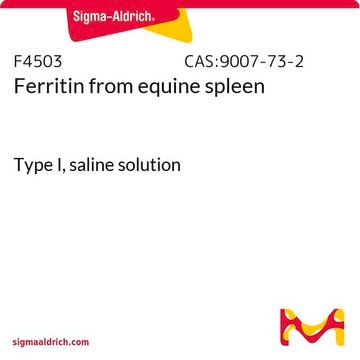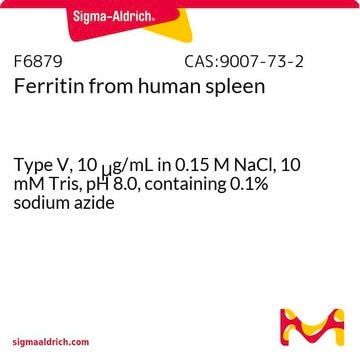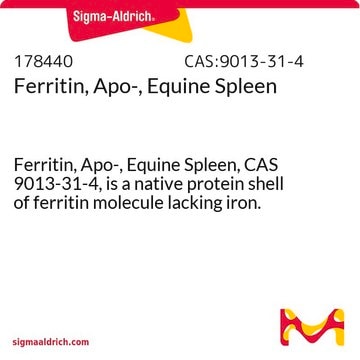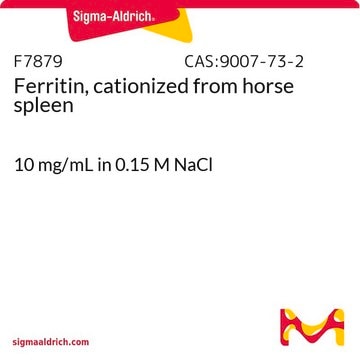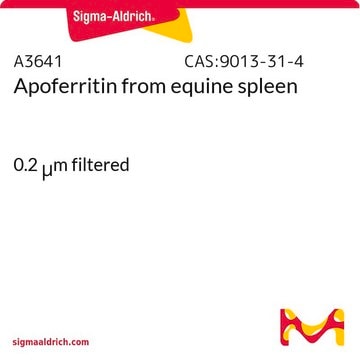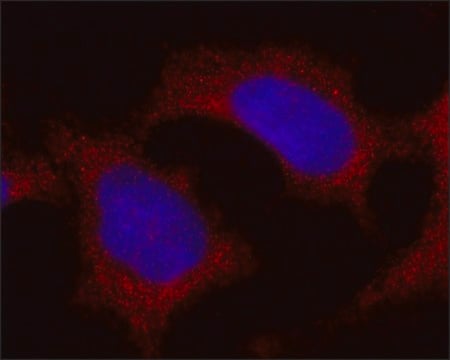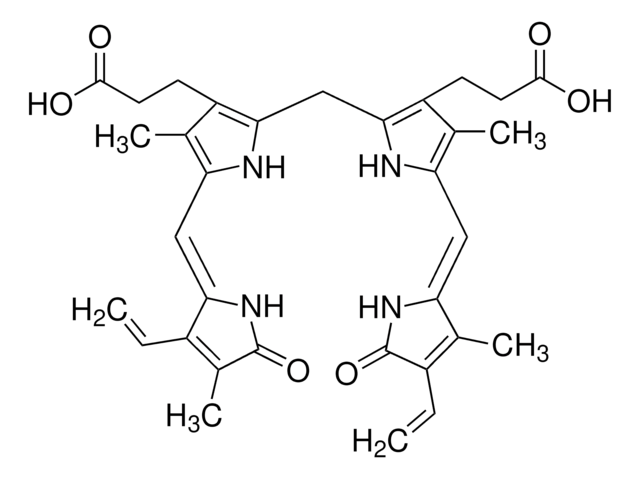341482
Ferritin, Human Liver
Ferritin, Human Liver, CAS 9007-73-2, is a native, sterile-filtered ferritin that is suitable for use in immunoassays, as an immunogen, and in enzyme/radiolabeling.
Synonym(s):
Ferritin, Human Liver
About This Item
Recommended Products
biological source
human
Quality Level
Assay
≥95% (SDS-PAGE)
form
liquid
manufacturer/tradename
Calbiochem®
storage condition
do not freeze
technique(s)
enzyme immunoassay: suitable
impurities
Antibodies to HIV1, HIV2, Hepatitis B, Hepatitis C, tested negative (by certified tests)
solubility
water: soluble
suitability
suitable for immunoassay
Protein ID accession no.
shipped in
wet ice
storage temp.
2-8°C
Gene Information
human ... FTH1(2495) , FTL(2512)
General description
Ferritin is a major iron storage protein. It exists in a two functionally and genetically different subunits namely, the acidic, heavy or H-chain and the basic, light or L-chain. Native ferritin from human liver. Sterile-filtered.
Application
Biochem/physiol Actions
Packaging
Warning
Physical form
Other Notes
Legal Information
Disclaimer
Storage Class Code
12 - Non Combustible Liquids
WGK
WGK 2
Flash Point(F)
Not applicable
Flash Point(C)
Not applicable
Certificates of Analysis (COA)
Search for Certificates of Analysis (COA) by entering the products Lot/Batch Number. Lot and Batch Numbers can be found on a product’s label following the words ‘Lot’ or ‘Batch’.
Already Own This Product?
Find documentation for the products that you have recently purchased in the Document Library.
Customers Also Viewed
Our team of scientists has experience in all areas of research including Life Science, Material Science, Chemical Synthesis, Chromatography, Analytical and many others.
Contact Technical Service
